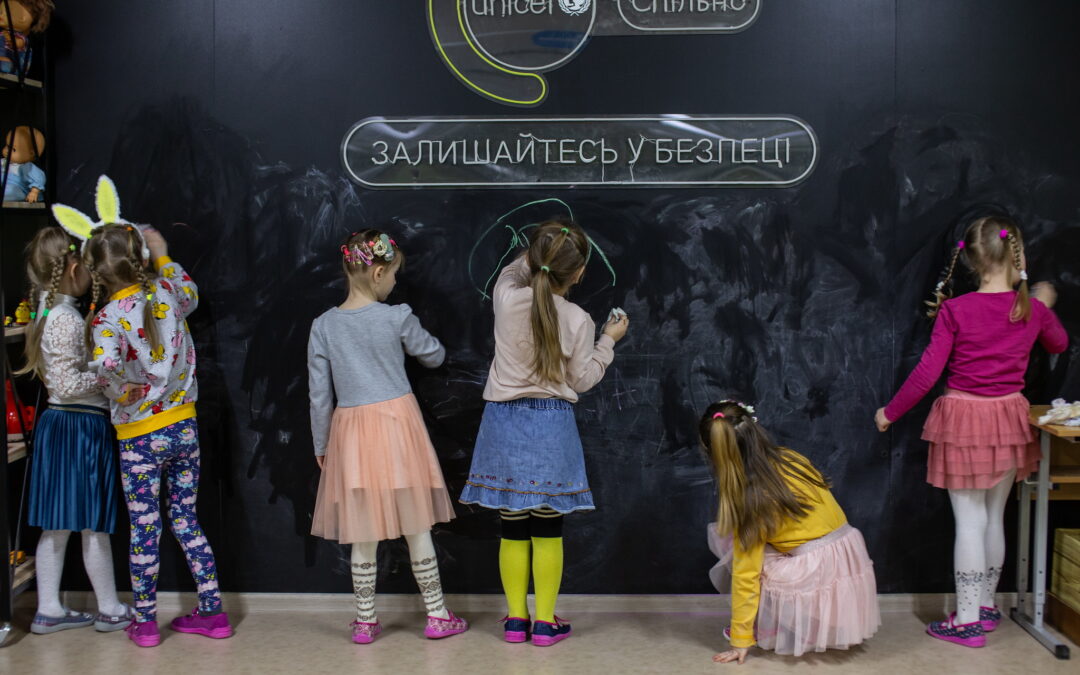Poland’s parliament has approved an extension of the legal right of residence and access to social support for refugees from Ukraine until September 2025. Poland is home to almost 1 million Ukrainian refugees, the second-highest figure in Europe after Germany, according to Eurostat.
However, the legislation also introduces changes, including a requirement that children attend Polish schools if they are to receive child benefits. Until now, many Ukrainian children have remained outside the Polish education system, often instead learning remotely with Ukrainian teachers.
Another new measure would require Ukrainians to confirm the legality of their stay in Poland using a valid travel permit. Ukraine has stopped issuing new passports abroad to men of military age as it seeks to encourage their return home to serve in the defence against Russia.
Warsaw says it can help Ukraine bring back men who are living in Poland despite being subject to military service back home.
The Polish defence minister says there are "justified grievances" among both Poles and Ukrainians against those avoiding the draft https://t.co/clGnh6vkZN
— Notes from Poland 🇵🇱 (@notesfrompoland) April 25, 2024
In a vote on Wednesday, an overwhelming majority of 381 MPs in the 460-seat Sejm, the more powerful lower house of parliament, voted in favour of the measures. Support came from both the ruling coalition and Law and Justice (PiS), the main opposition.
Only 19 MPs voted against it, 14 of them from the far-right Confederation (Konfederacja), which has consistently argued that Poland’s support for Ukrainian refugees has been too generous. Five MPs from the PiS caucus also voted against it while a further 20 abstained.
The bill now passes to the Senate, where it is likely to be approved. The upper house can suggest changes to the law or reject it, but in either case that can be overridden by the Sejm. Once passed by parliament, it would go to President Andrzej Duda for final approval.
A large majority of Poles, 62%, agree it would be "good for Poland if Ukrainian refugees stayed for many years".
Such positive sentiment has remained consistently high since Poland became the main destination for those fleeing Russia's invasion last year https://t.co/qGz1RqVoQF
— Notes from Poland 🇵🇱 (@notesfrompoland) July 4, 2023
Once adopted, the new rules would only allow Ukrainian parents to receive two forms of child benefit – one that pays 800 zloty per month per child and the other a one-off 300 zloty payment at the start of the school year – if their children attend Polish school.
In April, the government announced that Ukrainian children would be obliged to attend Polish schools from the start of the new academic year in September.
At the time, the education ministry noted that around 275,000 Ukrainian children were enrolled in the Polish education system while it estimated that around 50,000 to 60,000 were not.
The new legislation also indicates a 36-month period during which pupils can participate in additional free Polish language classes. This will apply to children who started attending classes in 2022/2023 or do so in 2023/2024.
Ukrainian refugee children in Poland will be obliged to attend school from September.
They have so far been allowed to continue their Ukrainian education remotely, and it is estimated that tens of thousands remain outside the Polish school system https://t.co/DXwhwFc2mP
— Notes from Poland 🇵🇱 (@notesfrompoland) April 5, 2024
The legislation, which is expected to come into force on 1 July, would also introduce new rules for confirming the identity of a Ukrainian citizen applying for a PESEL, Poland’s national identification number.
Last month, the Ukrainian authorities approved legislation under which men aged 18-60 who wish to leave Ukraine or are outside Ukraine will only be able to obtain a Ukrainian passport within their own country, as Kyiv looked to force conscription-age men to return to their country.
This left some Ukrainian men living in Poland worried that, without a valid passport, they will not be able to reside and work legally. The change adopted yesterday will require them to confirm the validity of their stay by presenting a valid travel document.
“Wherever the law mentions ‘travel document’, it is first and foremost a valid Ukrainian passport…There may be situations where a travel document is issued by another country,” Ukrainian House, a Warsaw-based organisation focused on helping the Ukrainian community, told Notes from Poland.
Previously, Ukrainians could confirm their identity also by, among other things, presenting a birth certificate, an invalidated document or a personal declaration.
The change was criticised by the office of Poland’s Human Rights Commissioner even before it was adopted.
“Making assistance in Poland conditional on the possession of a valid travel document may lead to premature returns of refugees from Ukraine…for whom it is impossible to obtain a document for reasons beyond their control,” they wrote.
Note: The article has been corrected to acknowledge that Ukrainians will be required to prove their identity by presenting a valid travel document – a passport – and not, as previously written, a Polish travel document, which is issued to some foreigners.

Notes from Poland is run by a small editorial team and published by an independent, non-profit foundation that is funded through donations from our readers. We cannot do what we do without your support.
Main image credit: Oleksandr Rakushnyak/EU (under CC BY-NC-ND 2.0)

Alicja Ptak is senior editor at Notes from Poland and a multimedia journalist. She previously worked for Reuters.



















